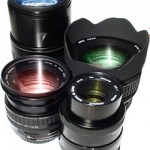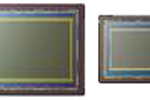Before you buy your next digital camera, READ THIS!
The advent of the digital camera is an amazing accomplishment! Digital cameras offer so many awesome features, that hobbyists and pros alike enjoy using them. They offer better portability, weighing much lighter than their heavier 35mm and other counterparts. And they boast these fine features: No handling with flash and film. Digital cameras save you a lot of time and money with no developing. Quick reloading of memory cards makes changing cards over film a breeze. The more technology advances, the less expensive digital cameras become. You can afford a good digital camera at any department store. Digital images also allow for instant viewing so you can immediately delete what you don’t want, eliminating the waste of film and developing.
Functionality of Images
Digital photos offer so much functionality, too, which is a big reason why digital cameras are so popular with people of all ages; amateur, intermediate and professional. At main events like weddings, baby arrivals, birthdays, graduations, office parties, anniversaries, holiday events and other fun times, you can snap digital shots and tell right away if they’ve turned out blurry or crisp. And you can tell if you’ve totally missed the angle and chopped off someone’s head! (Oops!) Simply delete unwanted shots, and still have plenty of time right then and there at your special event to snap re-takes. No more missing the good times! Then load your photo files into your computer or laptop, and BINGO! Instant email attachments to all your family and friends in a click. Or load them into an online photo album and send a link to everyone. You can also burn the files onto a CD and take them into a professional photo-lab. There’s so much more to learn about digital photography. With over 30 years experience of being a professional photographer, I know how important it is to have the right camera.

What camera are you going to get?

I am not going to go into a lot of detail here, there is too much to consider and this is a personal choice. Some things to consider:
• Find a good NAME BRAND, one that you know has been around for awhile, and they don’t just put their name on another manufacturer’s camera.
• Study the WARRANTIES. If this camera is going to be used for generating an income, you should consider getting the extended warranty to cover yourself.

• FIXED LENSES OR MULTIPLE LENSES? Multiple lenses will give you more variety of shots but can cost considerably more. Here again, you need to consider how the camera is going to be used. For general family use, the fixed lens is fine.
• The wider the RANGE OF ISO, the better. Shooting in low-light levels is easier with a higher ISO (1600 ISO).
Lower ISO for more detail (100 ISO).
• Built-in FLASH is not as versatile as an attachable flash where the flash head is positional. Here again, cost is a factor. For general family use, the built-in flash is fine.

• HOW MANY PIXELS DO I NEED? This is probably one of the hardest things for a consumer to consider. The more pixels you buy, the better the detail – but the more it costs. Personally, for family use, I would want an 8 megapixel camera. 4-6 megapixel cameras are fine for 4×6 – 5×7 snapshots. I wouldn’t push it further than that. As a professional photographer, I have no idea in some cases what size of portrait a client is going to want. They really don’t know what size they want until after they see it. So, what if it’s the most amazing photo they’ve ever seen of themselves and they want a 30 x 40 inch portrait out of it? How are we going to produce that with a small megapixel camera?Currently, for my clients, I am shooting a 16.87 megapixel camera. Pretty much nowadays, most professionals prefer a minimum of 10 to 20 megapixels and up. So where does that leave you? Well ask yourself this question: what size of image would I ever possibly make? An 8 x 10, 11 x 14 or 16 x 20? Will I be able to tell the difference between 2.0 and 4.0 megapixels? Are the additional details and original image sizes important to me?
So the final thought is: More megapixels equal more detail!
Scott Hancock
